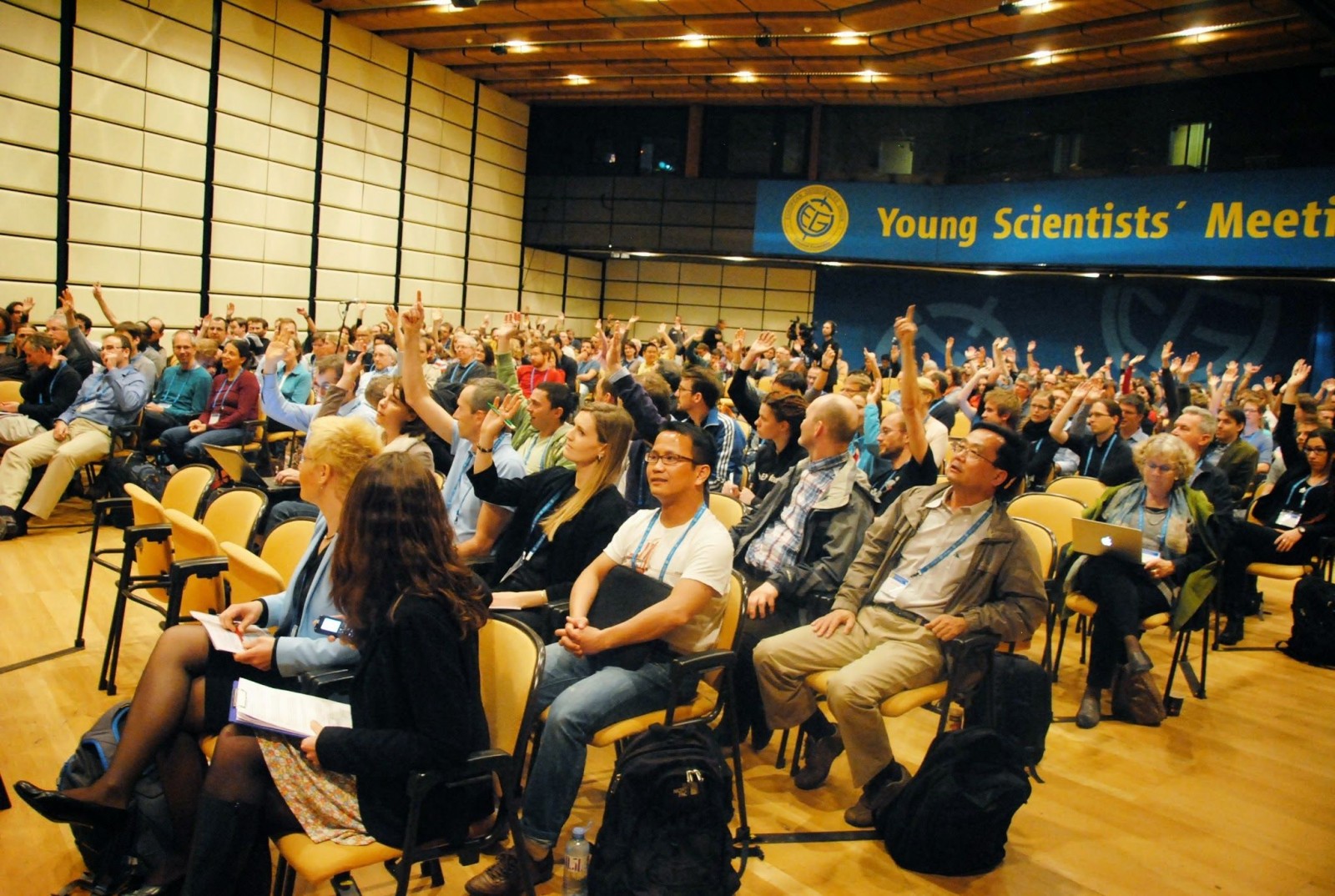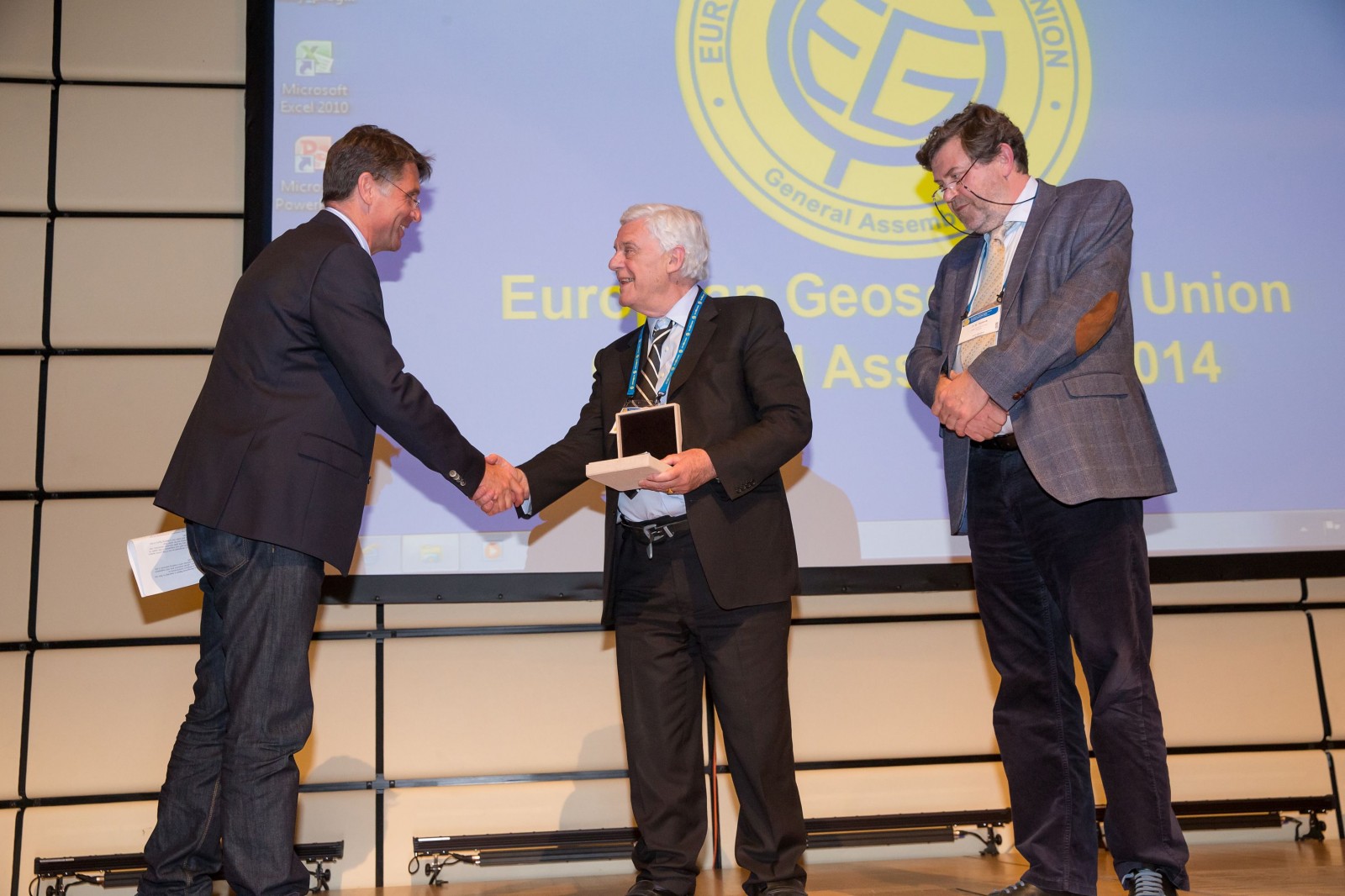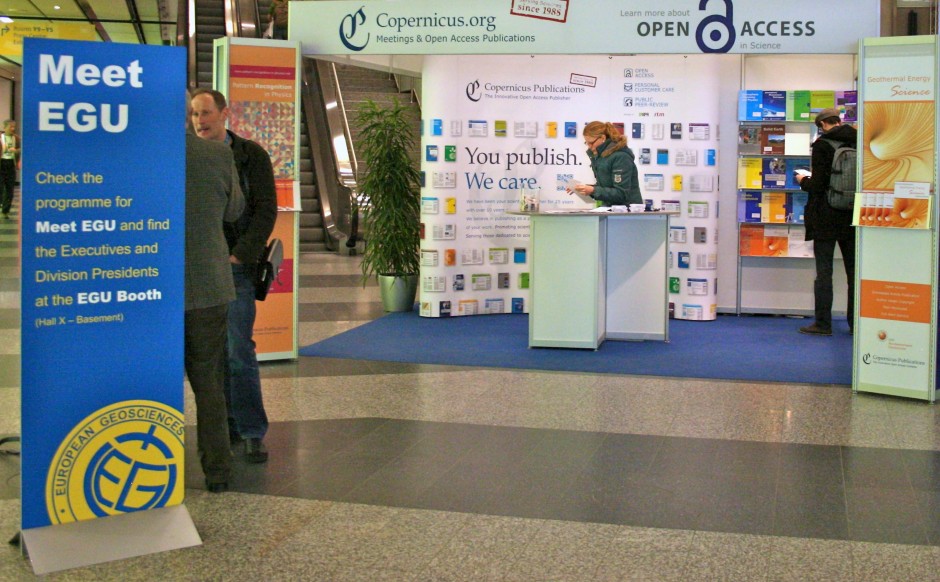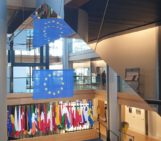Wondering what to expect at our General Assembly this year? Here are some of the highlights:
Great Debates (GDB)
This year we’re holding not one, not two, but four Great Debates! The topics covered this year are varied, from: The impact on global geoscience of accelerating Asian research, through to a debate about Open Access publishing, via discussing global freshwater use and water security and the avenues open to humanity when it comes to negotiating a new global climate change agreement. This year’s debates bring topical and controversial issues in Earth science to the fore. Experts from a variety of fields will discuss the problems and potential of the different topics before coming under fire as the discussion is opened up to the audience. Whether you are in Vienna or elsewhere, be sure to follow and join in the debates using #EGU15GDB on twitter.
Union Symposia and Lectures for a general geoscience audience (US, GL)
This year, the Assembly has a theme: A Voyage through Scales, which is featured in three of the five Union Symposia at EGU 2015. The theme is also being celebrated via two Lectures for a general geoscience audience (GL) on water in the terrestrial system and a detailed look at the continental crust. Increasing resilience to geophysical hazards such as earthquakes and tsunamis has become a key topic of research and so Union Symposia 3 is dedicated to this are of research. The final Union Symposia is devoted to celebrating the International Year of Soils, 2015. Finally, there’s the EGU Awards Ceremony – set to celebrate excellent research and achievement in the Earth, planetary and space sciences.
Educational & Outreach Symposia (EOS)
Educational and Outreach Symposia are sessions dedicated to all things education and outreach, and include the Geosciences Information for Teachers (GIFT) workshop, a long-running event for high school teachers that helps shorten the time between discovery and textbook.
Medal and Keynote Lectures (ML, KL)
There will be six Keynote Lectures across the geoscience as well as a grand total of 27 Medal Lectures this year!
Townhall Meetings (TM)
Townhall Meetings allow participants to take part in a lot of open discussion. This year’s meetings cover a huge variety of topics, from a panel discussion on scientific discourse in a digital era to a networking event for past and present Marie Curie Fellows and an international effort to save our science legacy.
GeoCinema (GC)
You can take a break from the conference buzz and enjoy an Earth science film in GeoCinema. The side event features a nearly continuous schedule of documentaries, clips and full length features, and will also showcase the finalists from the Communicate Your Science Video Competition during the breaks.
Meet EGU (EGU)
Meet EGU does exactly what it says on the tin – these sessions are a great opportunity to get to know your division president, put faces to names and find out what’s going on in the Union.
Short Courses (SC)
There are 50 Short Courses at the General Assembly this year! These give you an opportunity to top up your skills, be they in science communication, interview preparation, or more technical topics. We’ve complied a short list of highlights to get you started here.
Splinter Meetings (SPM)
Like Townhall Meetings, Splinter Meetings are organised by participants, but they are typically smaller and can be either public or by invitation only.
The EGU General Assembly is taking place in Vienna, Austria from 12 to 17 April. Check out the full session programme on the General Assembly website.






